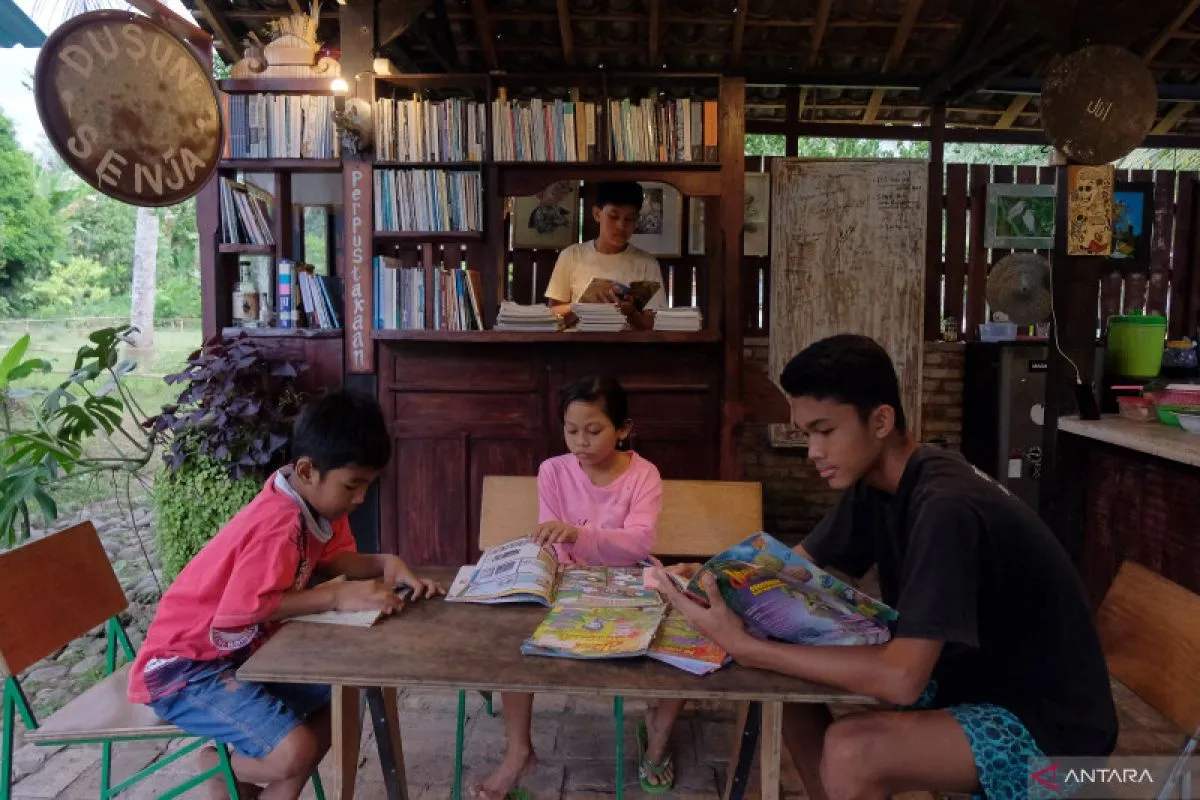
File - Children read books in a small library in Candikusuma Village, Jembrana, Bali, on July 23, 2022. Perpusnas said that it will distribute books to 10,000 rural libraries. (ANTARA FOTO/Nyoman Hendra Wibowo/wsj)
Jakarta (ANTARA) - Indonesia's national library, Perpustakaan Nasional (Perpusnas), said that it will distribute books to 10,000 libraries in villages and sub-districts, as well as community reading parks (TMBs), to meet communities' need for reading materials.
"In the initial stages, this program can reach up to 10,000 libraries in villages, sub-districts, and community reading parks, where we will distribute around 1,000 book titles," said E. Aminudin Aziz, acting director of Perpusnas, in a statement released by the library on Thursday.
He made the remarks during a hearing session with Commission X of the House of Representatives (DPR) in Jakarta on Wednesday.
The book distribution will serve as a further step to increase people's reading habit level, which rose from 63.58 in 2022 to 66.77 in 2023.
"This program aims to overcome limited access to reading materials in communities, not due to low reading habit but rather insufficient availability of materials," he explained.
Aziz added that the selection of TMBs is one of the goals of the program, which is in keeping with the aspirations of the Working Committee for Improving Literacy and Library Staff to empower reading communities.
It is also hoped that the use of libraries by the public will increase with the availability of books that cater to their interests and needs.
In terms of budget performance, Perpusnas' budget realization in 2023 reached 99.16 percent, or Rp708 billion, from the total budget of Rp714 billion (around US$45.7 million).
Vice Chairman of Commission X, Dede Yusuf, lauded Perpusnas' performance and response to recommendations from the Working Committee for Improving Literacy and Library Staff.
"We hope that the program of providing books to villages and sub-districts and community reading parks can increase community literacy activities and can be collaborated on and supervised together so that they are more targeted," he said.
Meanwhile, a member of Commission X, Fahmi Alaydroes, said that the level of library utilization in the community must be given attention.
"I see that what we have built—various library buildings with all kinds of equipment—must result in use by the community. Also, this literacy should be sought to become a movement that is synergized and collaborated with various parties," he added.
Besides ensuring the availability of reading materials, the challenge that Perpusnas is still facing in solving literacy issues in Indonesia is that the number of new school libraries is around 44 percent of the number of existing schools, and the number of library staff is low.
Commission X suggested that this must also be resolved to increase public literacy in Indonesia.